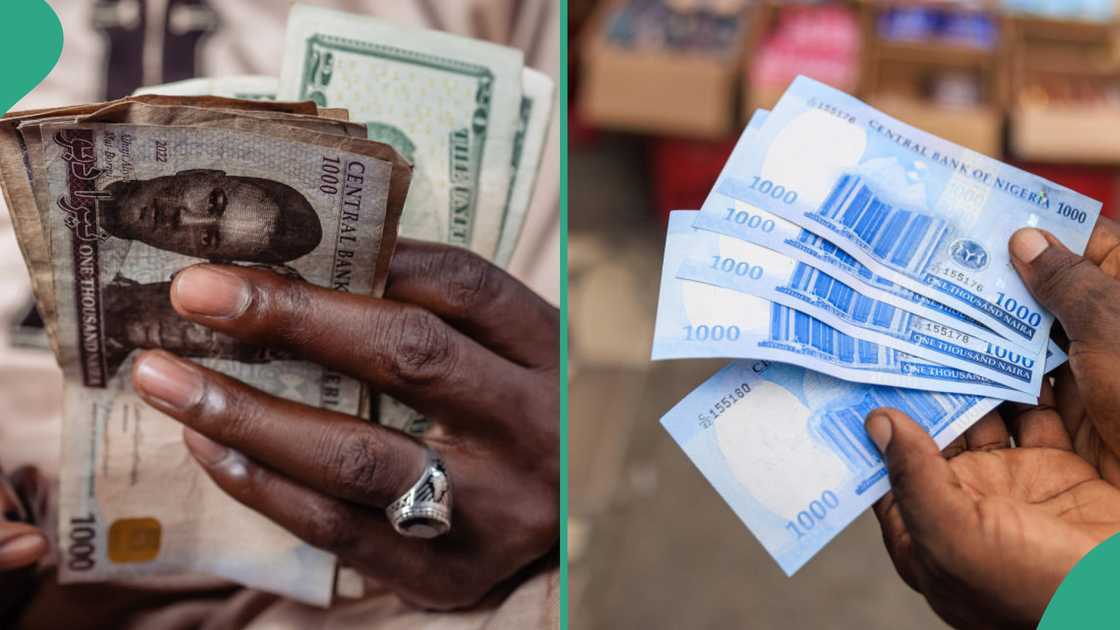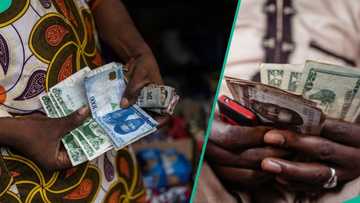Stronger Naira Exchange Rate as Foreign Reserves Hit Highest Level Since 2019
- Nigeria’s foreign reserves have soared to their highest level in six years as CBN reforms create a positive sentiment
- The latest reserves level has provided a major boost for the naira in both the official and parallel foreign exchange markets.
- Experts predict that the naira will close 2025 at a stronger level than it began across all forex markets
Legit.ng journalist Dave Ibemere has over a decade of experience in business journalism, with in-depth knowledge of the Nigerian economy, stocks, and general market trends.
Nigeria's Foreign reserves have surged to their highest level in six years, a big boost for the naira in the foreign exchange market.
Data from the Central Bank of Nigeria (CBN) showed that the country’s external reserves climbed to $42.57 billion as of October 7, 2025.

Source: Getty Images
The current balance of FX reserves is the highest level since 2019.
The increase reflects improved oil export receipts, higher remittance inflows, and sustained investor confidence following recent monetary and fiscal reforms.
Naira exchange rate
The rise in reserves has helped ease pressure on the Nigerian currency, as the naira continues to recover the value it lost in recent months.
On Wednesday, October 8, the strong performance continued in the Nigerian Foreign Exchange Market (NFEM) as the naira appreciated by 47 kobo, or 0.03% to close N1,470.62/$1, compared with N1,471.09/$1 recorded on Tuesday.
At the retail end of the market, data from Guaranty Trust Bank (GTBank) showed the naira slipped by N3 against the dollar to N1,478/$1, weaker than N1,475/$1 quoted on Tuesday.
However, the local currency weakened against other major currencies in the same market segment.
It lost 55 kobo against the British pound to settle at N1,975.19/£1, from N1,974.64/£1 a day earlier, and depreciated by N4.96 against the euro to trade at N1,711.51/€1, compared with N1,716.47/€1 on Tuesday.

Source: Getty Images
Naira in the black market
In the parallel market, the Nigerian currency lost N5 to exchange at N1,485/$1 on Wednesday, down from N1,480/$1 in the previous session.
Traders attributed the decline to renewed foreign exchange demand outpacing supply in recent days.
Musa a trader told Legit.ng:
"The market is quiet today, and fewer customers are coming in."
World Bank economic outlook for Nigerians
Meanwhile, the World Bank has expressed cautious optimism about Nigeria’s economic outlook, noting that recent policy reforms, including the removal of fuel subsidies, naira devaluation, and tax measures, have improved key macroeconomic indicators.
In its latest update, the multilateral lender said the Nigerian economy expanded by 3.9% year-on-year in the first half of 2025, up from 3.5% in the same period of 2024.
Growth, it said, was driven by stronger performance in services, non-oil industries, and improvements in oil production and agriculture.
Oil production rises
Earlier, Legit.ng reported more good news for the naira, as Nigeria’s domestic oil production averaged 1.6 million barrels per day (mbpd) in August, slightly above its 1.5 mbpd OPEC quota.
This improvement, driven by a reduction in crude theft and pipeline vandalism, has helped stabilise foreign exchange earnings.
The Nigerian Upstream Petroleum Regulatory Commission (NUPRC) disclosed that daily crude oil losses dropped to 9,600 barrels per day, a dramatic 90 per cent decline from 102,900 bpd recorded in 2021.
Source: Legit.ng




